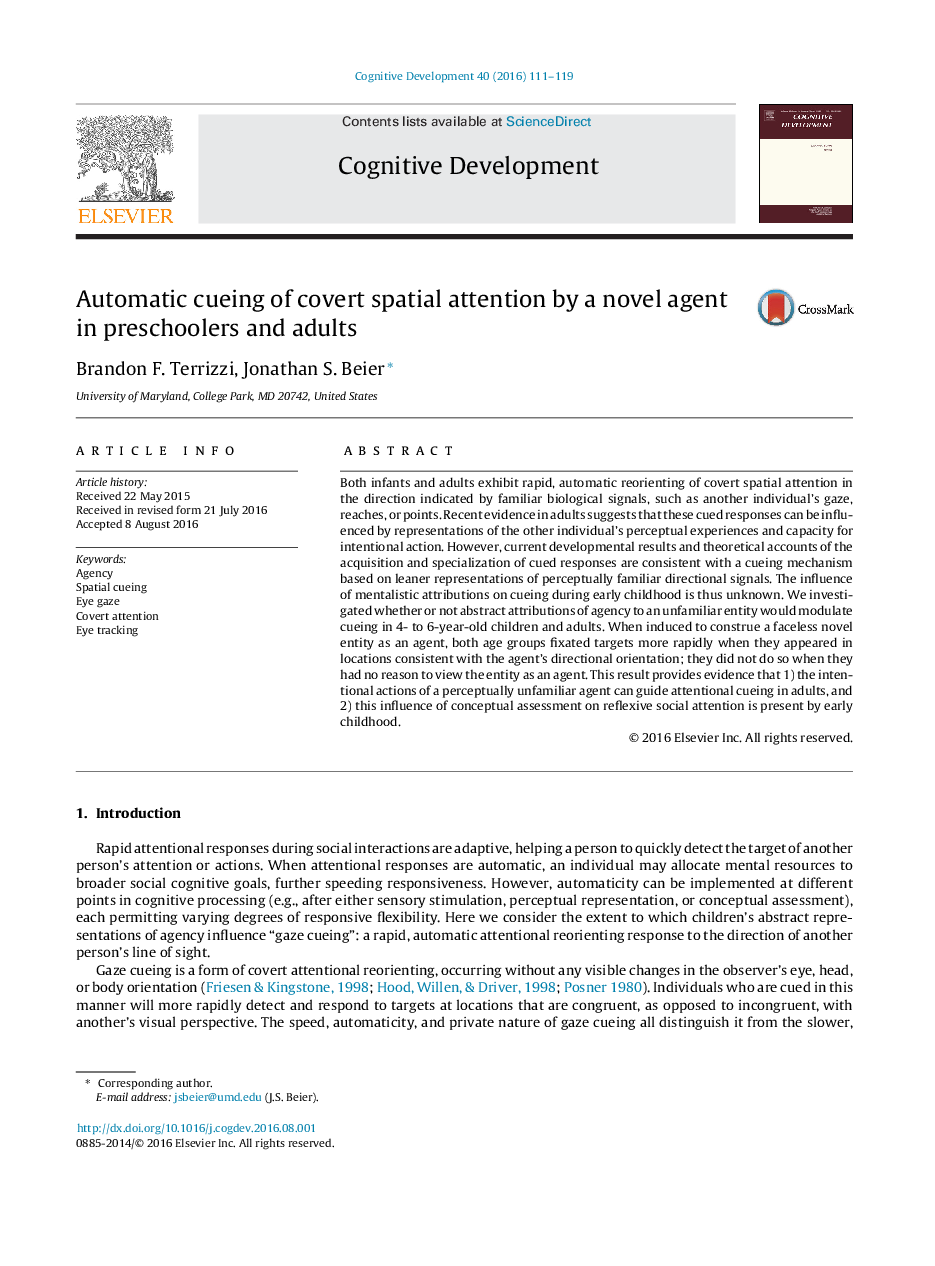| Article ID | Journal | Published Year | Pages | File Type |
|---|---|---|---|---|
| 7272343 | Cognitive Development | 2016 | 9 Pages |
Abstract
Both infants and adults exhibit rapid, automatic reorienting of covert spatial attention in the direction indicated by familiar biological signals, such as another individual's gaze, reaches, or points. Recent evidence in adults suggests that these cued responses can be influenced by representations of the other individual's perceptual experiences and capacity for intentional action. However, current developmental results and theoretical accounts of the acquisition and specialization of cued responses are consistent with a cueing mechanism based on leaner representations of perceptually familiar directional signals. The influence of mentalistic attributions on cueing during early childhood is thus unknown. We investigated whether or not abstract attributions of agency to an unfamiliar entity would modulate cueing in 4- to 6-year-old children and adults. When induced to construe a faceless novel entity as an agent, both age groups fixated targets more rapidly when they appeared in locations consistent with the agent's directional orientation; they did not do so when they had no reason to view the entity as an agent. This result provides evidence that 1) the intentional actions of a perceptually unfamiliar agent can guide attentional cueing in adults, and 2) this influence of conceptual assessment on reflexive social attention is present by early childhood.
Related Topics
Social Sciences and Humanities
Psychology
Developmental and Educational Psychology
Authors
Brandon F. Terrizzi, Jonathan S. Beier,
